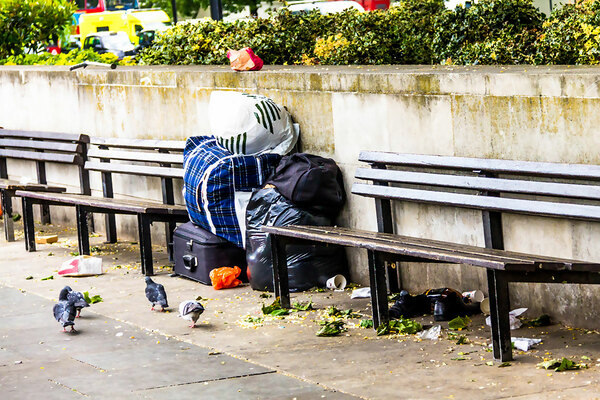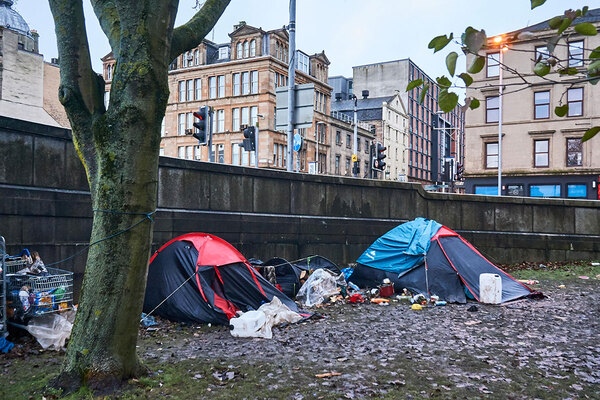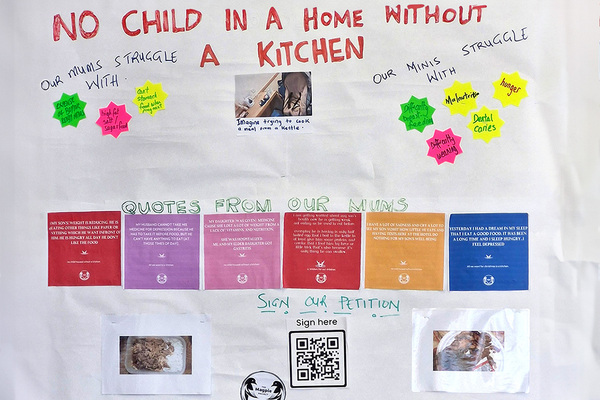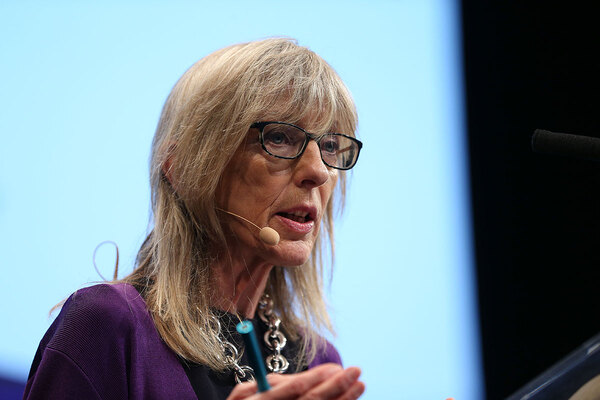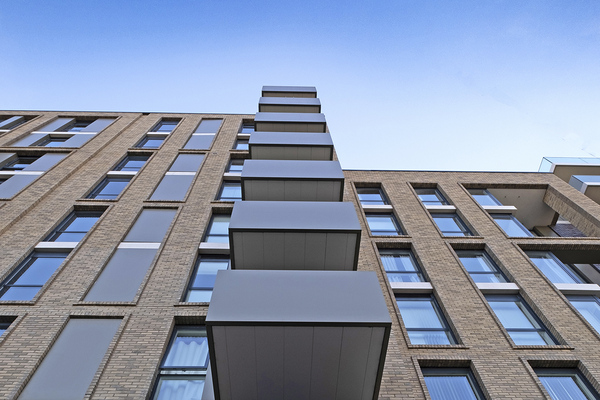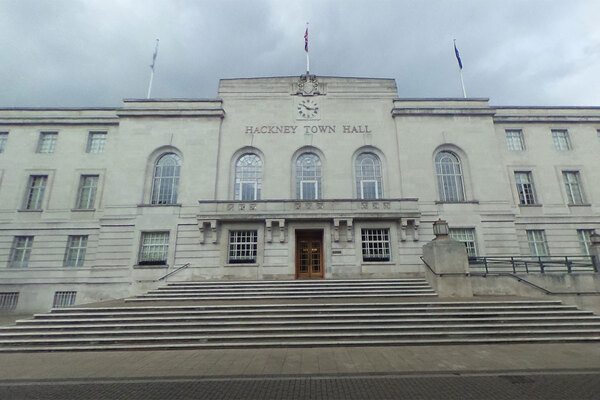You are viewing 1 of your 1 free articles
Councils turning away one in six homeless people despite 2018 act
Councils are being forced to leave thousands of people homeless because of barriers in the system that have seen one in six people turned away, a leading housing charity has claimed.
In a report released by Crisis today, it said that a dire shortage of affordable homes means 46% of people who approached their local authority for help when faced with homelessness remain stuck in rough sleeping, ‘sofa-surfing’ or insecure accommodation such as nightly paid B&Bs.
The report, titled I Hoped There’d be More Options, looked at the impact of the Homelessness Reduction Act 2018 and found that those most likely to remain homeless are people already in the most precarious forms of homelessness.
Despite 73% of respondents stating that their housing officer treated them with respect, issues with staff shortages, high caseloads and remote working left many feeling “passed from pillar to post” as their case progressed.
Crisis said that research for the report showed councils are increasingly reliant on expensive temporary accommodation, or else they push people towards the private rented sector, “but rising rents and evidence of rampant indirect discrimination means that people are being continually locked out of finding a safe home”.
Many respondents said they were refused a property because they were receiving benefits or had children.
This showed that while ‘no DSS’ discrimination has been deemed unlawful, this practice is still in use by agents and landlords to stop people renting from them, Crisis noted.
The charity called for an urgent commitment from the government to build 90,000 social homes each year for the next 15 years, and to introduce new legal protections to ensure those facing homelessness are helped to find a secure home.
It said that the Homelessness Reduction Act had enabled more people to get help, but 17% still reported being turned away by their council because they failed to meet one of the eligibility tests used to determine priority for support.
People sleeping rough are most likely to fail one of these tests and be turned away with no help.
When Crisis looked at the factors that drove people into homelessness, more than a third of those renting privately blamed an issue with their landlord or eviction, while over half of people sleeping rough cited mental health or a relationship breakdown.
Protections offered during the pandemic – such as the ban on evictions, unfreezing housing benefit and the Everyone In scheme – prevented a surge in homelessness.
But with those now gone and the cost of living rising sharply, Crisis said that councils could once again find themselves under increasing pressure but with limited tools to help people.
Matt Downie, chief executive of Crisis, said: “It’s shocking that councils are being forced to leave people living in dingy B&Bs infested with mice, while others live at the mercy of being turfed off the sofa onto the streets at a moment’s notice because they do not have enough affordable housing to go around.
“The Homelessness Reduction Act has made huge inroads on our mission to tackle homelessness but it’s incredibly disappointing to see it being constrained by a problem that is completely within our control to fix.”
Bob Blackman, Conservative MP for Harrow East, who initially piloted the act as a private member’s bill, said: “It remains disappointing that the act is being constrained by a severe lack of social housing stock – an issue which consecutive governments have simply not solved.
“The reality is, we cannot continue to bury our heads in the sand on this issue. While it’s positive the government is acting on Section 21 ‘no fault’ evictions, it will remain an incomplete approach if nothing is done to build more social housing.”
Crisis said it based its report on 1,434 surveys and 193 in-depth interviews with people experiencing homelessness.
Sign up for our homelessness bulletin
Already have an account? Click here to manage your newsletters
